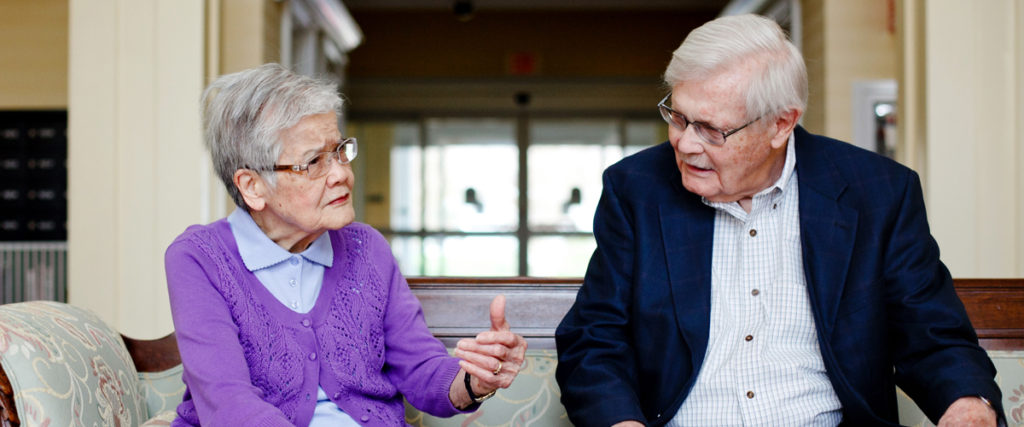
Hands down! The most difficult job that I have ever had was that of caregiver to my husband who was cognitively compromised. It took every ounce of emotional, intellectual and physical strength to be able to understand, empathize, manage and anticipate my loved one’s needs in the face of our communication breakdown. Add to that a marital dynamic that was already hardwired and – well, let’s just say it was more than a difficult time.
Sadly, my situation is not uncommon. And while we all empathize and feel that we understand the frustration surrounding dementia or communication disorders, living the reality is an entirely different proposition from reading about it. But one thing that reading about dealing with difficult behaviors helped me to understand was that it was absolutely necessary to understand the source of the behavior and to have an arsenal of strategies available to help us both cope and communicate.
The Source of Frustration
Whether the source of the communication problem is from Alzheimer’s dementia, stroke, a brain tumor or bleed, understanding the center’s of the brain that are affected can help the caregiver better understand the patient’s frustrations and difficult behaviors. For example, anxiety and agitation is very common amongst Alzheimer’s patients. Like many of us who experience anxiety for a variety of reasons, Alzheimer’s patients or patients with frontotemporal dementia can experience anxiety due to an awareness of their declining condition. That can sometimes lead to oppositional behaviors or fretfulness.
Patients with brain injury to a specific center of the brain that may affect their ability to speak or communicate will understandably experience frustrations that may lead to fits of anger or non-compliant behaviors such as “forgetting” that they need assistance to walk or perform certain tasks. And since they have difficulty communicating, they may resort to attempting to “do it themselves”. The desire to do it themselves or be the person they once were can lead to some dangerous situations that make the job of caregiving exponentially difficult. That is where safety becomes a primary concern.
It is Not About You – But Then it Is
It is important to remember that the journey of caregiving is really about making your loved one’s life easier and learning how to accommodate their needs. And while that puts the focus on them, the reality is that your job requires a herculean effort to stay calm, patient and objective enough to find innovative ways to handle your loved one’s difficult moments and demands.
As a caregiver we intellectually know that we must take care of ourselves and seek help and support. But when we are “in the moment” of a difficult behavior or meltdown, we need to have our tools and strategies ready to use. Because in moments of crisis we don’t really have time to Google an answer. We need to already know what to do or how to handle a difficult situation.
Dealing with Difficult Behaviors – Chandler Hall Speaker Series
As part of our mission of helping patients and families navigate the journey of aging not matter what form it takes, Chandler Hall is pleased to welcome Danielle Micale, MHA, LNHA, CTRS, CDP, CSDDCT, CDCM to our third and final Dementia Speaker Series Zoom seminar of 2020 entitled Dealing with Difficult Behaviors.
In this session Ms. Micale will walk us through the ever diverging pathways of helping us to help our loved one find peace and comfort in the midst of anxieties, anger and other frustrations that are the foundations of non-compliant behaviors and difficult to fulfill demands. In this intimate Zoom setting, attendees will be able to interact and ask questions and hopefully find new understanding and new strategies
Please take a few minutes out of your Saturday morning on October 10, 2020 to participate in this sure to be important discussion of Dealing with Difficult Behaviors. RSVP today at 267-291-2302 or email your response to: jriegel@chandlerhall.org
